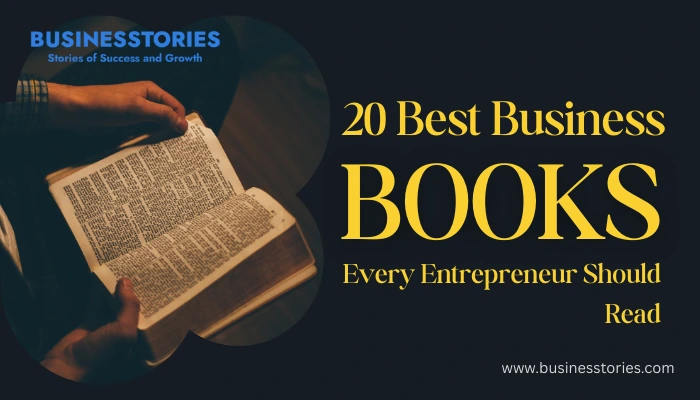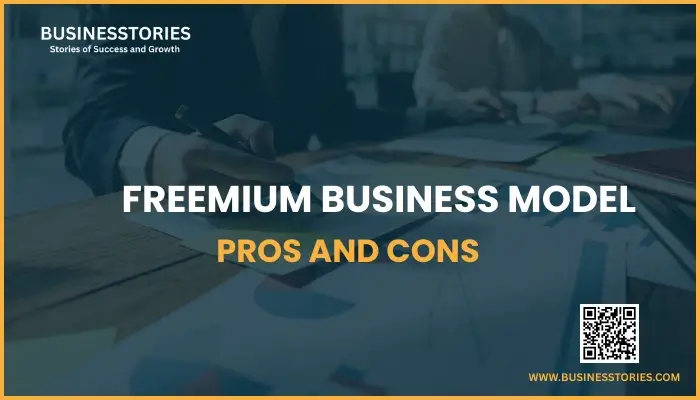Behind every great entrepreneur lies a great library. There’s something special about the best business books in bookshelf of a successful entrepreneur. It tells a story of curiosity, late-night learning sessions, and those moments that changed everything.
Entrepreneurship is a constant learning journey where you’re constantly learning, adapting, and sometimes completely rethinking what you thought you knew. The world’s most successful founders like from Bill Gates and Warren Buffett to Elon Musk and Reid Hoffman, they’ll all tell you that books have been absolutely crucial to their success. Reading isn’t just about gathering information. It’s about seeing things from angles you hadn’t considered, questioning your own assumptions, and stumbling upon ideas that spark something new in your business.
Whether you’re nervously planning your first startup or already running a company with offices around the world, the right book at the right time can completely shift how you think about leadership, strategy, and growth.
We put together this list by digging through what top business leaders actually recommend, looking at what Harvard Business Review consistently praises, checking out Financial Times Business Book Award winners, and seeing what books keep appearing on those reading lists that investors share. What emerged were these 20 best business books every entrepreneur should read —a genuine mix of strategy, leadership wisdom, innovation frameworks, and ethical thinking—that have influenced some of the world’s most impactful companies.
These aren’t just books to display on your shelf. They’re the ones that challenge you, teach you, and maybe even change the direction of your entire business.
Also Read: How to Become a Creative Entrepreneur
List of Top 20 Business Books for Entrepreneurs
1. Business Adventures — John Brooks
Bill Gates says this “One of the best business books I’ve ever read,” you pay attention. And Warren Buffett was the one who handed him his personal copy.
What makes this book so special is how Brooks twelve fascinating corporate stories that somehow never feel dated. He’s got this knack for showing you the human side of business—the risks people took, the leadership decisions that seemed impossible at the time, and how human nature plays out when the stakes are high. It’s not about formulas or frameworks. It’s about real people making real decisions, and the lessons that emerge from those moments.
2. The Lean Startup — Eric Ries
The startup classic that redefined modern entrepreneurship. This is the book that changed the game for how we think about building startups. Seriously, if you’re about to pour your time and money into building something, read this first.
Ries breaks down this whole approach to testing your ideas quickly, figuring out what actually matters, not what you think matters, and pivoting fast when you need to. The Build–Measure–Learn loop sounds simple, but it’s saved countless founders from spending years building something nobody wants.
It’s practical, it’s proven, and it’s probably saved more startups from failure than any other book out there.
3. Zero to One — Peter Thiel
Peter Thiel challenges founders to create new value rather than copy what exists. His whole premise is that real innovation means creating something entirely new—going from zero to one—not just making a slightly better version of what already exists.
This book’s contrarian insight— “competition is for losers”—encourages entrepreneurs to think about it. Thiel’s pushing you to think bigger, to find those opportunities where you’re not fighting in a crowded market but creating something genuinely transformative.
It’s the kind of book that makes you rethink your entire business strategy.
4. The Hard Thing About Hard Things — Ben Horowitz
Finally, someone who tells you the truth about what it’s really like to run a company. No sugar-coating, no motivational fluff—just honest. Ben Horowitz shares battle-tested wisdom from building and leading companies through crises.
This book itself provides practical guidance for CEOs to handle difficult leadership situations and further helps them survive tough business challenges.
Horowitz writes about the stuff other business books skip over: how to lead when everything’s falling apart, what to do when you have to make impossible decisions, and how to keep going when you’re pretty sure you’re about to fail.
It’s raw, it’s practical, and if you’re a CEO dealing with serious challenges, this book might just save you.
5. Good to Great — Jim Collins
What makes a company great—and keeps it great? They studied it methodically, looking at what separates good companies from truly exceptional ones that stay exceptional.
The “Hedgehog Concept” have become part of how we think about strategy now. But what’s really valuable is understanding the patterns: the leadership styles, the habits, the strategies that compound over time to create sustained excellence.
It’s not about quick wins—it’s about building something that lasts decades.
6. How to Win Friends & Influence People — Dale Carnegie
This book timeless classic teaches emotional intelligence before it had a name, decades before that term even existed.
Carnegie gets at something fundamental: business is about people. Whether you’re building a team, winning over customers, or forming partnerships, success comes down to how well you understand and connect with others.
Carnegie’s principles on empathy, really listening, not just waiting for your turn to talk, and genuine persuasion aren’t manipulative tactics—they’re about building real relationships.
If you’re going to lead people or sell anything, this book is non-negotiable.
7. Thinking, Fast and Slow — Daniel Kahneman
A masterclass in decision-making from a Nobel Prize-winning psychologist.
This Nobel Prize-winning psychologist breaks down how our brains actually work the fast, instinctive thinking versus the slow, deliberate kind, and all the hidden biases and mental shortcuts that trip us up along the way. Once you understand these patterns, you start catching yourself making better decisions.
It’s dense at times, sure, but the insights you gain about human behaviour are absolutely worth it.
8. Measure What Matters — John Doerr
Venture capitalist John Doerr introduces the OKR framework, Objectives and Key Results, the goal-setting framework that helped Google grow into, well, Google. This is the book that explains how it actually works.
Doerr, a legendary venture capitalist, lays out this system that keeps everyone aligned, makes progress crystal clear, and helps you actually execute at scale. It’s not just theory either—companies from Intel to startups you’ve never heard of use this exact approach.
If you’ve ever struggled with keeping your team focused on what really matters and who hasn’t? this business book gives you a practical framework that actually works.
9. The Innovator’s Dilemma — Clayton Christensen
Christensen’s ground breaking concept of “disruptive innovation” explains why established companies fail—and how startups can seize opportunity. Christensen figured it out, and his answer—disruptive innovation, changed how we understand competition. Founders who actually want to change industries should definitely read this book.
The wild part is that companies often fail precisely because they’re doing everything “right” according to traditional business logic. Meanwhile, startups create simpler, cheaper alternatives that established players ignore. until it’s too late.
If you’re trying to disrupt an industry or worried about being disrupted, this book explains the patterns you need to recognize.
10. Crossing the Chasm — Geoffrey A. Moore
Great products often fail because they can’t bridge the gap between early adopters and the mainstream market. You’ve got a product. Your early adopters love it. You’re feeling great. And then? You can’t seem to break through to the broader market.
Moore nails why this happens and, more importantly, how to fix it. There’s this gap—a chasm, really between the enthusiasts who’ll try anything new and the mainstream customers who need more convincing. Most products die in that gap.
Moore gives you an actual roadmap for making that crossing successfully, turning your small, loyal base into genuine mass adoption. It’s saved countless startups from the “great product, no customers” trap.
11. The E-Myth Revisited — Michael E. Gerber
Gerber reveals why so many small businesses are failing and how we can make them better. So many entrepreneurs start their businesses doing something they’re great at—trading, coding, consulting—and then find themselves drowning in operations, barely doing the thing they loved in the first place. Gerber gets why this happens?
His concept of “working on your business, not just in it” helps founders create systems and processes that free them from day-to-day chaos. He shows you how to build actual systems and processes so your business can run without you being the bottleneck for everything. It’s about creating something sustainable instead of just buying yourself a really demanding job.
If you’re exhausted from the day-to-day grind, this book might change your life.
12. High Growth Handbook — Elad Gil
Written by a Silicon Valley operator and investor, this book is a tactical guide for scaling a startup after product-market fit. That’s where most startup advice stops, but that’s exactly where this book begins.
Gil has been in the trenches—both as an operator and investor in Silicon Valley—and he’s writing for founders navigating that chaotic scale-up phase. How do you hire executives when you’ve never done it before? What do you do when acquisition offers start coming in? It’s incredibly tactical and grounded in real situations, not theory.
If you’re past the early startup phase and scaling fast, keep this one close.
13. The Four Steps to the Epiphany — Steve Blank
The basic plan that actually inspired the Lean Startup approach. This framework definitely became the foundation for modern startup methods. It’s the Open Graph framework for customer development.
Blank gives you a systematic way to discover what customers actually need, test your assumptions, and validate your business model before you burn through all your runway. It’s more academic in style than some others on this list, but the methodology is gold.
Every first-time founder should read this to understand how to find a scalable business model, not just build a product and hope people buy it.
Also Read: What Is The Nature Of Business And Why Is It Important?
14. Blue Ocean Strategy — W. Chan Kim & Renée Mauborgne
Chan Kim and Renée Mauborgne explores how companies can create new market spaces. The business book itself presents methods for avoiding competition through innovation.
Why fight in a “red ocean” where everyone’s competing on price and features when you could create your own “blue ocean” where competition becomes irrelevant?
That’s the premise here, and it’s compelling. Kim and Mauborgne show you how to innovate in ways that open up entirely new market space—think Cirque du Soleil reinventing the circus or how iTunes changed music.
It’s strategic, it’s creative, and it challenges you to stop thinking about beating competitors and start thinking about making them irrelevant.
15. Influence — Robert Cialdini
Why do people say “yes”? Cialdini spent years researching this question, and what he found is fascinating, and incredibly useful.
He breaks down six core principles: reciprocity, authority, social proof, scarcity, consistency, and liking. Once you understand these, you start seeing them everywhere—in marketing, sales, negotiations, even everyday conversations. The key is Cialdini teaches you how to use these principles ethically, not manipulatively.
Whether you’re trying to close deals, lead a team, or just communicate more effectively, this book gives you tools that actually work.
16. The Intelligent Investor — Benjamin Graham
The timeless investment philosophy that shaped Warren Buffett’s career. This is the one of the best business books that taught Warren Buffett how to think about investing, which should tell you something. But here’s what’s interesting, Graham’s philosophy goes way beyond just picking stocks.
His ideas about patience, understanding real value versus hype, and always maintaining a “margin of safety” apply to pretty much every major decision you’ll make as an entrepreneur.
Should you take that funding? Acquire that company? Enter that market? Graham’s framework for thinking about risk and reward is just as relevant for building businesses as it is for investing in them. It’s a bit dense, but the mental models you’ll gain are invaluable.
Graham’s lessons on patience, value, and margin of safety apply not just to investing, but to every entrepreneurial decision involving risk and reward.
17. Shoe Dog — Phil Knight
The candid memoir of Nike’s founder, Shoe Dog is a story of risk, resilience, and passion.
Knight’s honesty about failure and perseverance makes this one of the most inspiring entrepreneurial journeys ever written.
Most business books are polished and sanitized. This one isn’t. Phil Knight’s memoir about building Nike is raw, honest, and absolutely gripping.
He doesn’t hold back about the near-disasters, the moments he thought it was all over, the relationships that almost fell apart, the cash flow nightmares that kept him up at night. But what comes through is this incredible passion and stubborn resilience.
It reads like a thriller, except it’s all true. If you need a reminder that every successful company has a messy, uncertain origin story, this is it. Genuinely one of the most inspiring entrepreneurial stories ever told.
18. Start with Why — Simon Sinek
Great companies don’t just sell products—they sell purpose.
Why do some brands inspire fierce loyalty while others just sell stuff? Sinek figured it out with his Golden Circle concept: Why, How, What.
Most companies start with what they do. Great leaders start with why the purpose, the belief that drives everything else. Apple doesn’t just sell computers; they challenge the status quo. When you lead with why, you don’t just attract customers you build a movement.
This business book fundamentally changes how you think about leadership, culture, and connecting with the people who matter most to your business.
19. The Everything Store — Brad Stone
An inside look at Jeff Bezos and Amazon’s relentless culture of innovation. Stone got incredible access and tells the story of Jeff Bezos’s relentless, sometimes controversial approach to building one of the world’s most powerful companies.
Brad Stone’s reporting reveals how long-term vision and customer obsession built one of the world’s most powerful businesses.
What’s fascinating is seeing how Bezos’s obsession with long-term thinking and customer experience shaped in every decision, even when Wall Street thought he was crazy. The culture he built is intense some would say too intense, but we can’t argue with the results.
Whether you admire or critique Bezos’s methods, understanding how he thinks about innovation and scale is incredibly valuable.
20. Bad Blood — John Carreyrou
The real story of Theranos and Elizabeth Holmes is not only exciting but also very serious at the same time. If the other books on this list teach you what to do, this one shows you what absolutely not to do. The Theranos story is wild like, can’t believe this actually happened wild.
Carreyrou’s investigation into Elizabeth Holmes and how she built a $9 billion company on lies reads like a thriller. But beyond the drama, it’s a sobering reminder about why integrity matters. You can’t fake your way to success forever. Corners cut, lies told, and transparency sacrificed will eventually catch up with you.
Every entrepreneur should read this as a cautionary tale about the non-negotiables: honesty, ethics, and doing the actual work rather than just telling a good story.
Carreyrou’s investigation further shows that honesty and openness are necessary in business itself.
How to Read These Books Strategically?
You don’t need to read all 20 at once. That’s not the point. The key is picking the right book for where you are right now.
Start by choosing one of the best business books that addresses your current challenge:
- Launching a startup? The Lean Startup, Four Steps to the Epiphany. They’ll save you from expensive mistakes.
- Scaling fast? You need Measure What Matters, or the High Growth Handbook to bring some order to the madness.
- Leading people, Struggling with team dynamics or leadership? How to Win Friends & Influence People and Start with Why will shift how you think about leading people.
- Building strategy? Good to Great and Blue Ocean Strategy will give you frameworks that actually work.
- Avoiding pitfalls, want to learn from others’ mistakes? Business Adventures and Bad Blood are your cautionary tales, learn the lessons without paying the price yourself
Pairing these readings with reflection or team discussions multiplies their impact. Discuss them with your co-founders, your team, or other entrepreneurs. When you talk through the ideas, debate them, apply them to your specific situation—that’s when the real learning happens.
Final Thoughts
Reading is the most underrated growth strategy in business. Everyone’s chasing the latest hack, the new trend, the secret formula. But these business books? They’ve stood the test of time because they tap into something deeper, how people actually think, decide, and behave.
As Warren Buffett perfectly said:
“The more you learn, the more you earn.”
So start building your founder’s library. You don’t need all 20 business books on your shelf tomorrow. Just pick one. Read it thoughtfully. Apply what resonates. Then pick another.
One timeless idea at a time—that’s how you build the kind of knowledge that compounds into real wisdom. And in entrepreneurship, that wisdom might just be your biggest competitive advantage.



